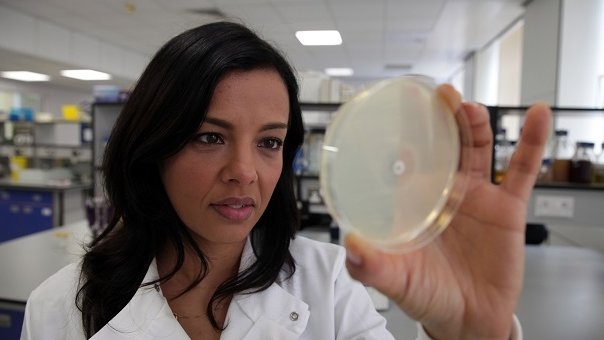The antibiotics challenge: why it matters
09 Jul 2014
Written by Liz Bonnin
I am so pleased that ‘Antibiotics’ has been chosen for the new Longitude Prize, and that this challenge is receiving the exposure and support it so urgently needs.
I championed this topic because I believe that the problem of antibiotic resistance is the most pressing of the challenges put forward, and that by focussing on one aspect of the multifaceted approach needed to mitigate this global threat, we have an achievable goal.
The £10 million prize can fund the collaboration and research necessary to further existing technologies and expertise in order to produce a point-of-care test kit.
What’s particularly exciting for me is how, in a world where the future is often shaped by decision makers without the public being armed with all the information, we have all had a chance to have our say.
The Longitude Prize is an example of how, given the opportunity, we can all demonstrate our understanding of the magnitude of a global issue and play a part in finding a solution.
The facts are clear: over 25 million unnecessary courses of antibiotics are prescribed to patients in the UK every year, with each one potentially contributing further to resistance. Five thousand people in this country die each year from bacterial infections that used to be easily treatable with antibiotics.

Such facts give credence to the notion of a dystopian future for medicine, where even routine operations could become life-threatening again.
Many measures need to be taken to prevent this from becoming a reality, including producing new antibiotics, developing novel ways to fight bacterial infections and improving hygiene practices – changes in screening policies have already helped the NHS reduce levels of MRSA in its hospitals by 70 per cent between 2003 and 2012.
However, to dramatically reduce the pace of antibiotic resistance, we must also develop a diagnostic test that can distinguish between viral and bacterial infections quickly, cheaply and accurately.
We will never be able to eliminate antibiotic resistance altogether, but improving the efficiency of diagnosis, thereby dramatically reducing misdiagnosis and over-prescription of antibiotics in doctors’ surgeries would make a huge contribution towards protecting and preserving our existing antibiotics as well as any new antibiotics developed in the future.
Thank you again for voting and being a part of the Longitude Prize 2014; I enjoyed reading your comments on social media and seeing so many of you express what matters to you, shaping the future by informing yourselves and making your voices heard.
And of course it doesn’t end here. Once the finer details of the challenge are set, the prize will be open for your submissions in the autumn.
Through innovation, collaboration, and thinking outside the box, will you play a part in the solution and win the Longitude Prize?
This blog was originally published on the Nesta website – read the original post.
Have you got an idea to solve the antibiotics challenge? Register your interest.
